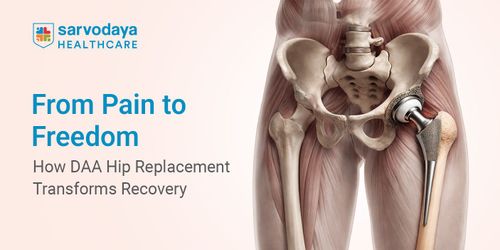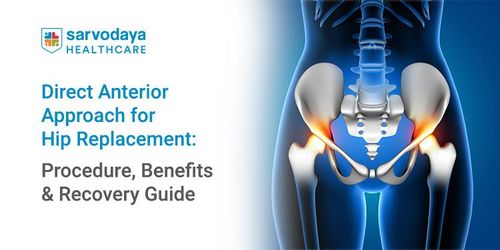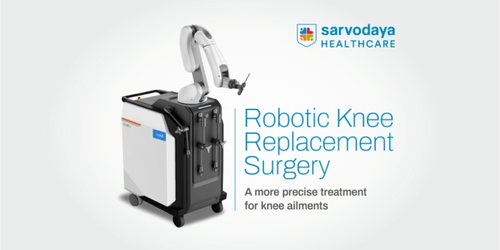Hip pain is physically and emotionally draining, often restricting movement and affecting simple daily activities such as walking or even resting comfortably at night. For many, the turning point comes when traditional approaches such as medications, injections, or physical therapy stop being effective. At this stage, a more permanent solution, such as hip replacement, is crucial.
In this blog, we explore what causes hip pain, when surgery becomes necessary, and how hip replacement offers long-term relief.
Causes of Hip Pain
A variety of underlying conditions may cause hip pain. The most common causes include osteoarthritis, rheumatoid arthritis, fractures, or degenerative joint disease. Regardless of the origin, the pain often increases with time, gradually making it harder to perform everyday tasks.
Typical causes of hip pain include:
- Osteoarthritis: A wear-and-tear condition of the joint that causes pain and stiffness.
- Rheumatoid Arthritis: Autoimmune inflammation leading to joint damage.
- Fractures: Often the result of trauma or weakened bones.
- Degenerative Conditions: Progressive deterioration of cartilage and bone.
- Avascular Necrosis: A condition characterised by a reduced blood supply to the bone, resulting in the death of bone tissue and causing joint pain, stiffness, and eventual collapse of the hip joint.
Signs Indicating the Need for Hip Replacement Surgery
When evaluating whether hip replacement surgery is needed, doctors look for specific signs that conservative treatments are no longer effective.
Some clear indicators are:
- Persistent hip pain even at rest and despite taking medication.
- Stiffness of the joint that restricts movement and mobility.
- Sleep disturbance and difficulty with daily functioning due to pain.
- Imaging results showing severe joint damage or degeneration.
Understanding Total Hip Replacement Surgery
For patients with severe hip joint damage, a total hip replacement surgery often becomes the most pressing question. This surgery, also known as total hip arthroplasty, involves replacing the damaged parts of the hip joint with artificial implants designed to restore mobility and alleviate pain.
The surgery typically includes the following steps:
- Removal of the damaged bone and cartilage from the hip joint.
- Replacement of the socket (acetabulum) with a durable prosthetic cup.
- Insertion of a metal or ceramic ball attached to a stem in place of the femoral head.
- Fixation of the components using either cement or a bone ingrowth method to ensure stability and long-term durability.
Read More- Hip Replacement Surgery - Purpose, Procedure, Risks
Types of Hip Replacement
There are various hip replacement types, and the choice depends on the patient’s age, lifestyle, and the extent of joint damage.
The main types include:
- Total Hip Replacement: The most common surgery, where both the ball and socket of the joint are replaced.
- Partial Hip Replacement: Only the femoral head is replaced, usually after certain types of fractures.
- Hip Resurfacing: An alternative for younger patients, involving capping the femoral head with a smooth metal covering instead of removing it.
- Minimally Invasive Hip Replacement: This technique uses smaller incisions, causing less disruption to surrounding muscles and tissues, which leads to quicker recovery and a shorter hospital stay. A popular method is the Direct Anterior Approach (DAA), where the hip joint is accessed from the front rather than the side or back. Since major muscles are not cut but gently moved aside, patients often experience less pain, faster healing, and improved joint stability.
Hip Replacement Cost in India
The overall hip replacement surgery cost depends on multiple factors, including the type of implant, the complexity of the case, the city where the treatment is carried out, and the surgeon’s experience.
Key factors influencing the hip replacement cost in India include:
- Type of Implant: Metal, ceramic, or hybrid implants vary in cost.
- Surgical Technique: Minimally invasive methods may slightly increase expenses but reduce recovery time.
- Hospital Facilities: Reputed centres, such as the renowned orthopedic hospital in Delhi, Faridabad often provide advanced technology and rehabilitation support.
- Surgeon’s Expertise: Selecting the most skilled orthopaedic surgeon in Noida can significantly impact success rates and overall expenses.
- City of Treatment: Costs in metropolitan cities may be higher compared to smaller towns.
Benefits of Total Hip Replacement
Beyond pain reduction, patients often report significant physical and emotional benefits after recovery.
Some of the significant benefits include:
- Long-Term Pain Relief: The most significant advantage is lasting freedom from chronic hip pain.
- Enhanced Mobility: Walking, climbing stairs, and bending become much easier once the joint is replaced.
- Improved Quality of Life: Daily activities can be performed comfortably, restoring independence.
- Better Mental Health: Increased mobility and reduced pain often lead to greater confidence and a positive outlook.
- Hip Replacement Before and After Impact: Many patients experience a dramatic improvement in lifestyle, showing visible differences in activity levels pre- and post-surgery.
Read More- Hip Pain Relief through Total Hip Replacement
Hip Replacement Surgery Recovery Time
The hip replacement surgery recovery time depends on the individual case, taking into account factors such as age, overall health, and the type of surgery performed.
The recovery process generally follows these stages:
- Hospital Stay: Most patients remain in the hospital for three to five days after surgery.
- Early Recovery (First 6 Weeks): Walking with support, gentle movement, and pain management are encouraged.
- Rehabilitation Phase (6–12 Weeks): Physiotherapy and specific hip replacement exercises are introduced to restore strength and flexibility.
- Long-Term Recovery (3–6 Months): Most patients can resume their daily routines, although full recovery may continue for up to a year.
Conclusion
Living with persistent hip pain can be overwhelming, limiting both physical activities and emotional well-being. For patients who no longer respond to medication or physiotherapy, hip replacement surgery offers a safe and effective solution that restores mobility and improves quality of life. With advancements in surgical techniques, recovery is faster and outcomes are more reliable than ever before.
At Sarvodaya Hospital, Faridabad, patients receive comprehensive care from diagnosis to rehabilitation. With state-of-the-art infrastructure, advanced technology, and the expertise of the most experienced orthopaedic surgeon in Delhi NCR, the hospital ensures safe, precise, and patient-centric treatment. The hospital also offers robotic hip replacement surgery, a cutting-edge approach that provides superior precision, smaller incisions, reduced pain, and faster recovery. This modern technique improves implant positioning, minimises complications, and helps patients regain mobility and confidence more quickly. Preventive consultation services further support individuals in understanding risks early and exploring the right treatment options before conditions worsen.
Book an appointment now to consult experienced specialists who are committed to your recovery and a healthier, pain-free future for you.







































